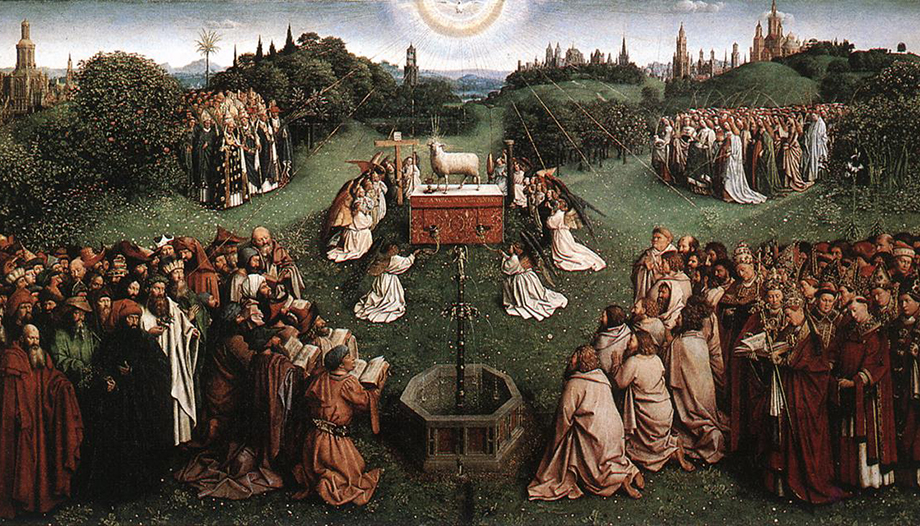Commentary on the Holy Thursday readings
The old Covenant was stipulated by God with Abraham, passing through the slaughtered animals and their blood. Jesus in the institution of the Eucharist mentions the New Covenant, which will last forever. It is stipulated as the old one: by God as protagonist and us as recipients of his covenant of love, in his blood that will be shed on the cross and is presented beforehand to his apostles in the wine of the chalice, separated from the bread of his body. The tender lamb sacrificed by order of the Lord at the Passover of liberation from Egypt and whose blood was smeared on doorposts and lintels to save the first-born of the Jewish families, was a figure of Christ, who is about to shed his blood on the cross for the salvation of all.
John emphasizes that Jesus knows all this and everything else about his Passover, and that is why his gestures are full of divine wisdom. "Knowing Jesus that his hour had come."He loved his disciples to the end. "Knowing that the Father had placed everything in his hands, that he came from God and returned to God."He washed the feet of his apostles. A gesture descended from the wisdom of Jesus and linked to the meaning of that Passover. Jesus left his garments. They are the same garments perhaps woven by his mother and perhaps impregnated with the perfume of the most precious spikenard that Mary of Bethany poured on his feet (Jn 12:3) and his hair (Mk 14:3): three hundred grams. The same garments that the next day the Roman soldiers took after crucifying him. And they divided them into four parts, one for each soldier, and cast lots on the tunic woven in one piece. To say that "were takenJohn uses a verb that also means "...the garments".host". As if Jesus had given them to him. In fact, he had already left them to wash at the feet of his own, he had already donated them. Perhaps he also took them off on Calvary. And the unconscious Roman soldiers, taking them with them, took away a relic of Christ.
He washed the feet of all, even of Judas, even of Peter, who did not want to, so that they would form "part"He reaches out to all the disciples, to all the soldiers, to all the people. It reaches all the disciples, all the soldiers, all the people. "When I am lifted up above the earth, I will draw everyone to myself."(Jn 12:32). While Jesus knows everything, we know little and badly. Let us then let Jesus wash our feet, let us gather up his clothes and all that he gave up to give himself: work, family, country, honor, disciples, security, life. We accept all that he has in his hands, in the bread that is himself. Jesus made Eucharist who gives himself to us: "eat"He tells us because he wants to share with us.
The homily on the readings of Holy Thursday
The priest Luis Herrera Campo offers its nanomiliaa small one-minute reflection for these readings.









